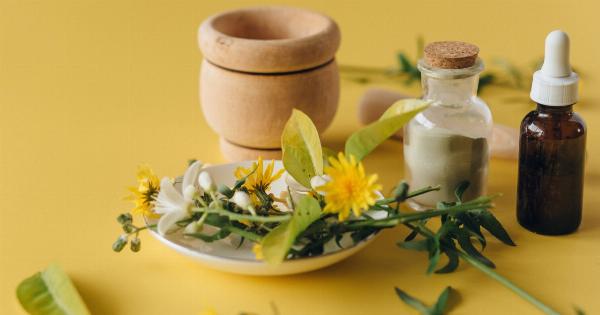Antibiotic resistance is a growing problem worldwide. Bacteria are now developing resistance to multiple antibiotics, making it increasingly difficult to treat infections.
This has led researchers and healthcare professionals to search for alternative treatments, including plant-based remedies. Plants have been used for medicinal purposes for thousands of years and have shown promising results in treating antibiotic-resistant infections.
Garlic
Garlic is a natural antibiotic that has been used for medicinal purposes for centuries. It contains allicin, which has anti-microbial properties that can help fight against antibiotic-resistant bacteria.
Studies have shown that garlic extracts can be effective in treating MRSA, a bacteria that is resistant to many commonly used antibiotics.
Manuka Honey
Manuka honey is a potent antibacterial agent that has been used for wound healing for centuries. It has been shown to be effective in killing a wide range of bacteria, including MRSA.
Manuka honey works by drawing moisture out of bacterial cells, which in turn kills them. It also has anti-inflammatory properties, making it effective in reducing swelling and redness associated with wounds.
Tea Tree Oil
Tea tree oil is a powerful essential oil that has been used for medicinal purposes for centuries. It has antiseptic and antimicrobial properties that can help fight against antibiotic-resistant bacteria.
Studies have shown that tea tree oil can be effective in treating infections caused by MRSA and other bacteria.
Turmeric
Turmeric is a spice that has long been used in Ayurvedic medicine. It contains curcumin, which has been shown to have anti-inflammatory and antimicrobial properties.
According to studies, curcumin can inhibit the growth of antibiotic-resistant bacteria, making it a potential treatment for infections that are resistant to antibiotics.
Echinacea
Echinacea is a plant that has been used for centuries to treat a variety of conditions, including infections. It has been shown to have immune-boosting properties that can help fight against infectious bacteria.
According to studies, echinacea can stimulate the immune system, making it effective in preventing and treating infections.
Ginger
Ginger is a spice that has been used for medicinal purposes for centuries. It contains gingerols and shogaols, which have been shown to have antimicrobial properties.
According to studies, ginger extract can be effective in killing bacteria that are resistant to antibiotics.
Cranberry
Cranberry is a fruit that is rich in antioxidants and has been shown to have anti-inflammatory properties.
According to studies, cranberry juice can help prevent and treat urinary tract infections (UTIs), which are often caused by antibiotic-resistant bacteria. Cranberry juice works by preventing bacteria from sticking to the walls of the urinary tract, making it easier for the body to flush them out.
Goldenseal
Goldenseal is a plant that has been used for centuries to treat infections. It contains berberine, which has been shown to have antimicrobial properties.
According to studies, berberine can be effective in killing a wide range of bacteria, including antibiotic-resistant strains.
Andrographis
Andrographis is a plant that has been used in traditional medicine for centuries. It contains andrographolides, which have been shown to have antimicrobial properties.
According to studies, andrographis can be effective in treating infections caused by antibiotic-resistant bacteria.
Oregano Oil
Oregano oil is a potent essential oil that has been used for medicinal purposes for centuries. It contains carvacrol and thymol, which have been shown to have antimicrobial properties.
According to studies, oregano oil can be effective in killing bacteria that are resistant to antibiotics, making it a potential treatment for infections that are difficult to treat.






























